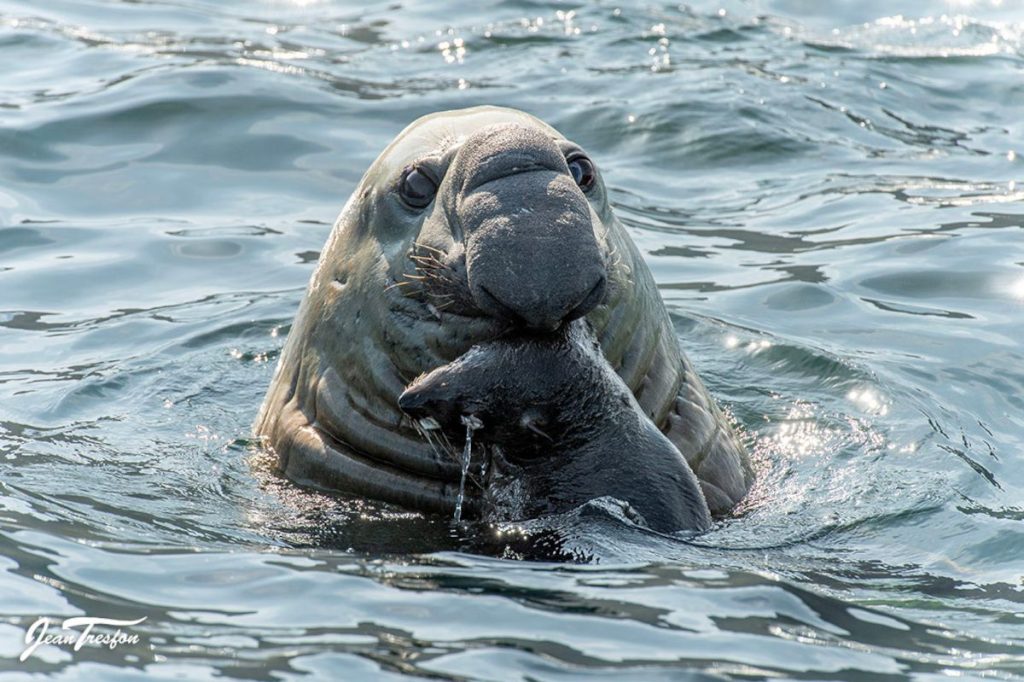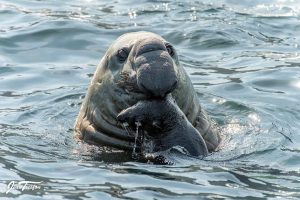Buffel the Elephant Seal gets his rabies shot – PICTURES

Buffel, perhaps the world’s most famous Elephant Seal, has been resident at Duiker Island near Hout Bay for a few weeks now.
RELATED | Buffel the southern elephant seal spotted – PICTURE
Marine conservation photographer Jean Tresfon was part of the team that helped administer a rabies jab to Buffel late last week.
In a Facebook post, Tresfon detailed that Buffel ‘has a pretty nasty habit of using the local cape fur seals as chew toys, although he doesn’t seem to eat them!
‘It is currently breeding season for southern elephant seals and this behaviour is most likely as a result of increased hormone levels,’ Tresfon added.
‘Buffel has consistently chosen not to go back to the sub-antarctic islands where he would have the best chance at finding a mate, and as a result he takes out his frustration, or perhaps just misplaced affection, on the local fur seals. Sometimes they fight back and he has suffered some nasty bite wounds in the past.
‘With the relatively recent rabies outbreak in the South African and Namibian cape fur seal populations, there have been legitimate concerns that Buffel is in danger of contracting the disease.
‘Local scientists and city authorities have taken the very pro-active and forward thinking step of having these massive out-of-towners vaccinated to prevent them taking the disease back to the sub-antarctic islands.
‘And so it was on Friday last week that I joined City Coastal Manager, Gregg Oelofse, and the vaccination team to give Buffel his jab.
‘The shot was taken by Ilse Jenkinson, the Two Oceans Aquarium vet with the help of SPCA’s Jon Friedman, as well as Claire Taylor, also from the Two Oceans Aquarium.
‘Also present were Mike Meyer, now-retired but a still legendary marine scientist, and then a media crew including myself, journalist Nic Bothma and of course ocean guide extraordinaire, Steve Benjamin!
‘I was super impressed by operation, clearly giving a jab to a 3 000kg hormonal blubber submarine is never going to be straightforward, and yet everything went off without a problem. Job well done!’
If you gaze up to the skies over the Western Cape coastline, there’s an excellent chance you’ll spot marine conservation photographer Jean Tresfon flying overhead.
Tresfon has been taking to the air for several years now, bringing those followers of his Facebook page award-winning photographs taken from his trusty gyrocopter.
If you’re not already one of his 62 000 followers, we strongly suggest you do so.
Pictures published with the permission of Jean Tresfon





